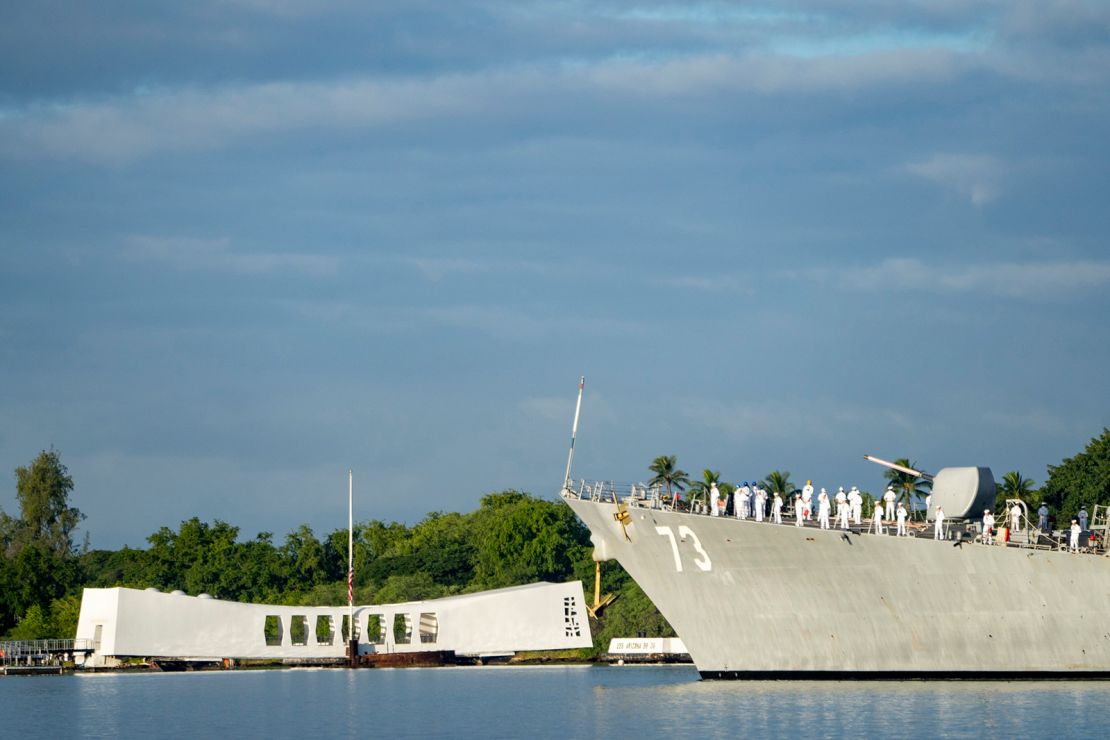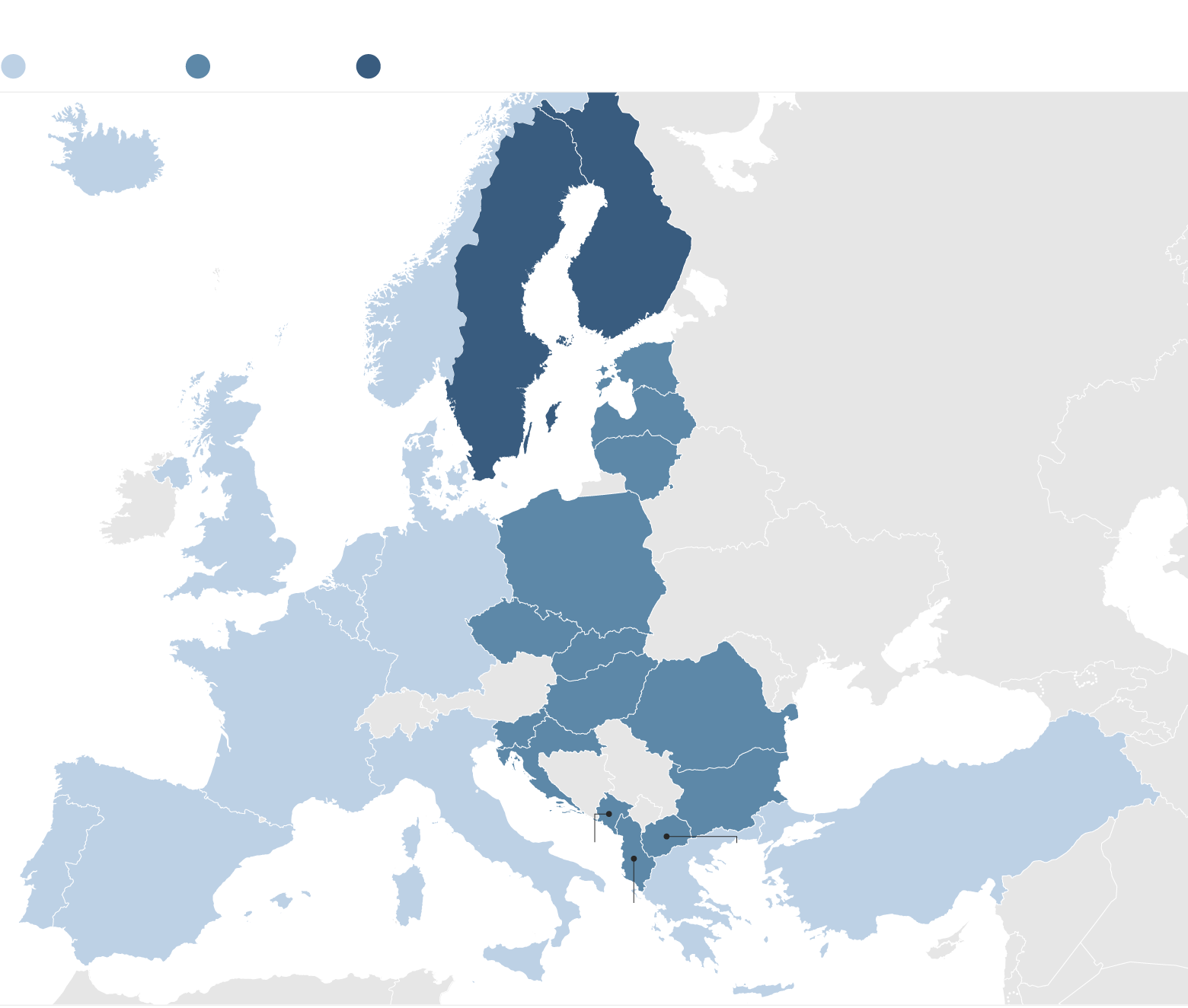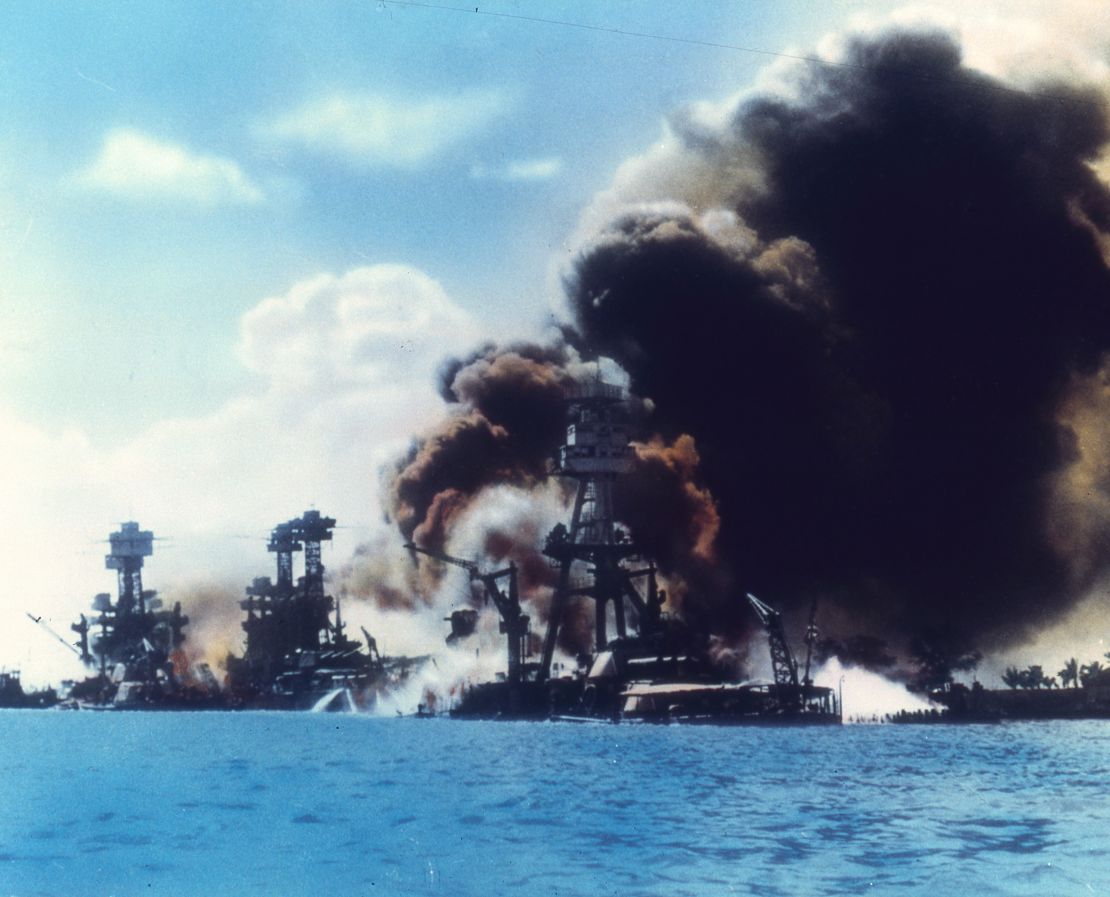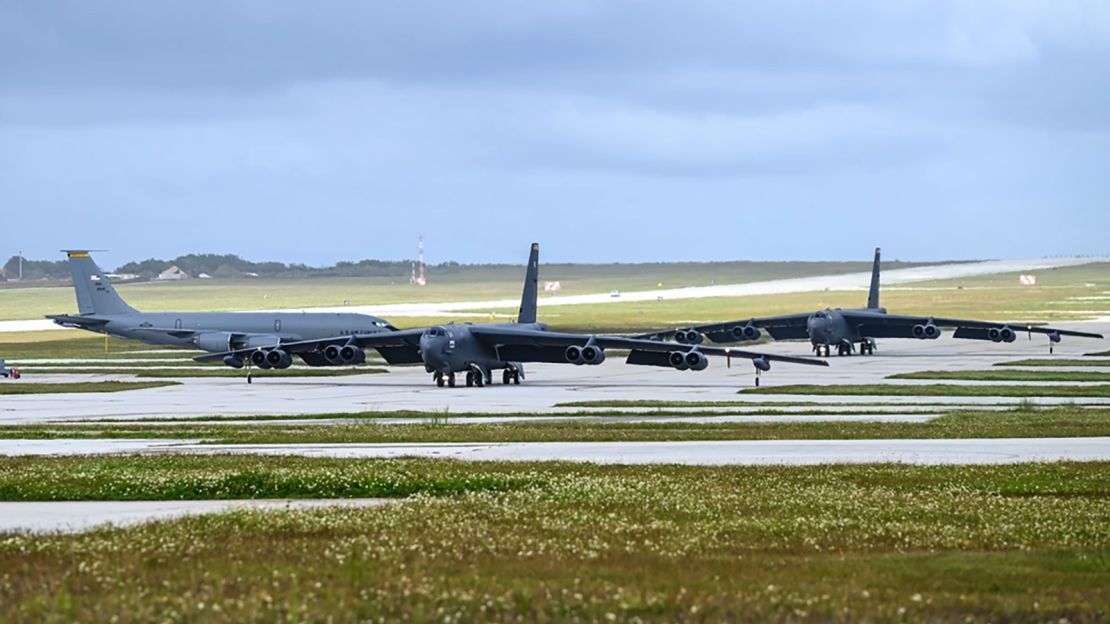
This article is more than
1 year old
Because in a quirk of geography and history, Hawaii is not technically covered by the NATO pact.
If a foreign power attacked Hawaii – say the US Navy’s base at Pearl Harbor or the headquarters of the Indo-Pacific Command northwest of Honolulu – the members of the North Atlantic Treaty Organization would not be obligated to rise to the Aloha State’s defense.
“It’s the weirdest thing,” says David Santoro, president of the Pacific Forum think tank in Honolulu, who added that even most Hawaii residents have no idea their state is technically adrift of the alliance.

“People tend to assume Hawaii is part of the US and therefore it’s covered by NATO,” he says.
But, he concedes, the tip-off is in the alliance’s name – North Atlantic Treaty Organization.
Hawaii is, of course, in the Pacific, and unlike California, Colorado or Alaska, the 50th state is not part of the continental US that reaches the North Atlantic Ocean on its eastern shores.
“The argument for not including Hawaii is simply that it’s not part of North America,” Santoro says.
The exception is spelled out in the Washington Treaty, the document that established NATO in 1949, a decade before Hawaii became a state.
While Article 5 of the treaty provides for collective self-defense in the event of a military attack on any member state, Article 6 limits the geographic scope of that.

When European countries joined NATO
Before 1991
After 1991
After 2022
ICELAND
FINLAND
RUSSIA
NORWAY
SWEDEN
ESTONIA
LATVIA
LITHUANIA
DENMARK
RUS.
BELARUS
IRELAND
UNITED
KINGDOM
NETH.
POLAND
GERMANY
UKRAINE
BELGIUM
CZECH
REP.
LUX.
SLOVAKIA
GEORGIA
AUSTRIA
HUNGARY
SWITZ.
FRANCE
ROMANIA
SLOVENIA
CROATIA
BOSNIA
HERZ.
BULGARIA
ITALY
PORTUGAL
TURKEY
MONTENEGRO
NORTH
MACEDONIA
SPAIN
GREECE
ALBANIA
CYPRUS
A US State Department spokesperson confirmed that Hawaii is not covered by Article 5, but said Article 4, which says members will consult when “the territorial integrity, political independence or security” of any member is threatened, should cover any situation that could affect the 50th state.
The spokesperson also said any treaty amendment to include Hawaii would be unlikely to gain consensus because other members have territories outside of the boundaries set in Article 5.
For instance, NATO did not join founding member the United Kingdom’s 1982 war with Argentina after Argentine troops invaded the Falkland Islands, a disputed British territory in the South Atlantic.
NATO has not responded to a CNN request for comment.
Hawaii, Guam, Taiwan and North Korea
Some experts say times have changed in the decades since the Washington Treaty was signed – and argue today’s political situation in the Indo-Pacific might require a rethink.
That’s because US military bases in Hawaii could play a vital role in both countering North Korean aggression as well as supporting any potential defense of Taiwan.
China’s ruling Communist Party claims the self-governing democratic island as its territory despite never having controlled it. Chinese leader Xi Jinping has made “reunification” with Taiwan a key part of his overarching goal to “rejuvenate” the nation by 2049.
While Chinese leaders have said they hope to take control of the island via peaceful means, they have not ruled out doing so by force — and have ramped up military intimidation of the island in recent years.
The Taiwan Relations Act obligates Washington to provide weaponry for the island’s defense, and US President Joe Biden has suggested he would use US military personnel to defend it in the event of a Chinese invasion (though White House officials have said the US policy to leave that question ambiguous has not changed).
A 2022 wargame scenario run by the Center for a New American Security played out with China attacking US command and control installations in Hawaii as part of its war to take Taiwan by force.
Leaving Hawaii out lets Beijing know that NATO’s European members potentially have a bit of an “escape clause” when it comes to defending US territory in such a hypothetical situation, he says.
“Why would we not put that element of deterrence at our disposal?” Hemmings says. “Why would we leave that off the table i

Hawaii’s strategic importance also has deep historical significance for the US. “This is where Pearl Harbor happened. This is where we were attacked that brought us into the Second World War, and – by the way – this is what also led to us to help liberate France,” he says.
“For Americans there is a direct link between this state and our involvement in the Second World War and ultimately our help in contributing to the victory over the Axis (the alliance of Nazi Germany, Japan and Italy).”
Hemmings also makes an argument for Guam, the US Pacific island territory some 3,000 miles farther west than Hawaii, to be included in NATO’s umbrella.
The island, which has long been a focal point of North Korean saber rattling, is home to Andersen Air Force Base, from which the US can launch its B-1, B-2 and B-52 bombers across the Indo-Pacific.
Hemmings likens Guam’s exclusion from NATO to how the US left the Korean Peninsula outside of a line it drew across the Pacific to deter the Soviet Union and China from spreading communism in January 1950. Five months after the so-called Acheson Line was drawn, the Korean War began.
“The adversary feels emboldened to carry out military conflict and you end up having a war anyway,” Hemmings says.
The Pacific Forum’s Santoro also mentions Guam should be included under the NATO umbrella. “Strategically, Guam absolutely matters a lot more than Hawaii,” he says.

‘Coalition of the willing’
Other analysts argue that were such a hypothetical attack to take place on Hawaii, or Guam, the deep and abiding ties that bind the US and its democratic allies would be substantially more significant in countries’ decision-making than a technicality in the NATO treaty.
In the event of an attack, “I would expect … the United States to try to put together a coalition of the willing involving primarily – but certainly not exclusively – regional allies,” says Luis Simon, a director of the Research Centre for Security, Diplomacy and Strategy at the Brussels School of Governance in Belgium.
Simon cites the alliance’s strong and immediate response after the 9/11 attacks, the only time in its 74-year history that NATO has triggered the collective self-defense mechanism under Article 5.“But Washington actually chose to channel its response through a coalition of the willing, and not through NATO Command,” he says. “I suspect we’d see a similar reaction in the case of an attack on either Guam or Hawaii, with the US wanting to retain full military control over (the response) and diplomatic flexibility.”
Simon also says he doesn’t see any real daylight between NATO members and their commitment to the US and the alliance.
NATO is a bedrock of the transatlantic democratic community. The US and other NATO members have touted unprecedented unity among the alliance in the face of Russia’s unprovoked invasion of Ukraine. And NATO has also hardened its shared rhetoric on China in recent years, vowing to address what they describe as the “systemic challenges” Beijing poses.
“I personally have little doubt they would be ready to provide different forms of assistance in case of an attack against US sovereign territory, including individually and through multilateral venues like the (European Union) or NATO,” he says.
CNN’s Jennifer Hansler contributed to this report.